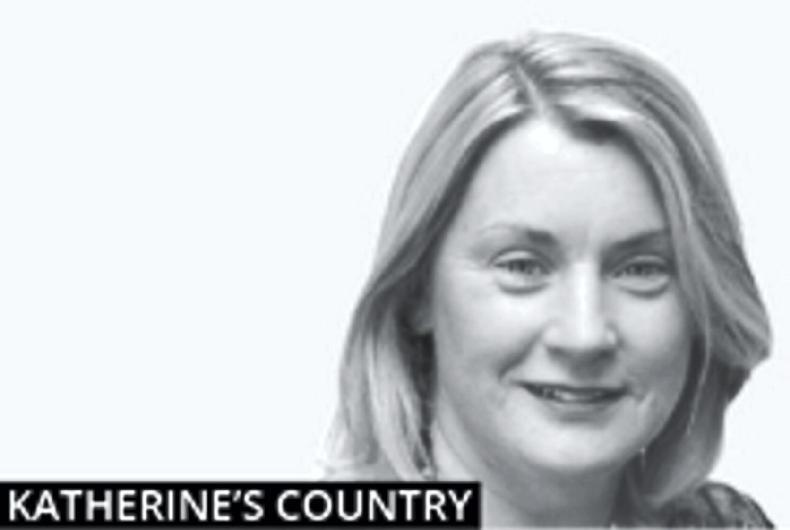My son Colm and I were returning to the car after an exhilarating tour around the Teagasc Moorepark Open Day 2021.
The occupants of the car beside us were also homeward bound.
One man said to all who were within earshot: “Clover, clover, clover and sustainability! It’s all about clover.”
He said that dairy farmers must operate farming systems that are financially profitable while at the same time environmentally sustainabl
And he slammed the boot of the car shut indicating message received.
It was a fair enough summary of the day.
It is crystal clear that our practices as dairy farmers have to change to protect the planet and its environment
Dr Pat Dillon outlined the mission at the entry point. He said that dairy farmers must operate farming systems that are financially profitable while at the same time environmentally sustainable.
Over the next few years and beyond; it is crystal clear that our practices as dairy farmers have to change to protect the planet and its environment. If we don’t buy into the research and instead choose to ignore the advice; then we could find our businesses restricted in all sorts of ways to reduce agricultural emissions and minimise the impact of our activities on the environment.
We navigated the quota years and farmers proved they could adapt and will again
In the words of Dr Emer Kennedy “We’ve had challenges before. We navigated the quota years and farmers proved they could adapt and will again.” Emer’s board was on once-a-day milking. While this might not be for everyone; we find it a great management tool for the first month of calving.
Young farmers buzzing
The mood was upbeat and the young farmers in particular were buzzing and inspired. Discussion groups gathered new knowledge to add to their agendas.
The crowd was responsive and the positivity pulsated through the listeners. Negativity had no place at the open day.
There’s a lot of reading in 127 papers
The information boards displayed a huge body of research and clearly pointed out what must be done on Irish farms. The take-home bible Irish Dairying Delivering Sustainability will sit on our kitchen table for many weeks to come. There’s a lot of reading in 127 papers!
The confidence that the researchers have that farmers can manage the challenges with science based advice is inspiring.
That’s the spirit that is needed to navigate being sustainable on all fronts
This is because we have always adopted new technologies and direction from Teagasc. The crowd listened carefully, distilling the new science based research. The listening is the first step. The implementation will follow.
As Brendan Horan finished his discourse a young enthusiast near me punched the air saying: “Let’s do it for Brendan!” That’s the spirit that is needed to navigate being sustainable on all fronts. Brendan spelled out the four questions that need to be answered on our farms; is it possible for farmers to farm and remain profitable? Is it environmentally sustainable? Is it socially sustainable guaranteeing our licence to farm? Is the quality of our product the best it can be?
What’s next?
Already we’ve adopted many of the measures recommended on our farm. As my husband Tim says: “The first four boards in Moorepark should be a box-ticking exercise for us.”
Michael O’Donovan’s board told us that only 18% of farmers are using LESS
Better breeding, using sexed semen and driving the economic breeding index (EBI). Tick.
Using protected urea in order to improve Ireland’s water quality metrics. Tick.
Using low-emission slurry spreading (LESS) to reduce the greenhouse gas released into the atmosphere and improve soil fertility. Tick.
Michael O’Donovan’s board told us that only 18% of farmers are using LESS. Gone is the day when you could go out to the fields with the splash plate slurry spreader releasing the gases into the atmosphere.
Apart from greater emissions, it is visible to all farming and non-farming neighbours, damaging Irish farmers licence to farm. This is the way we have to think in order to protect our industry and livelihoods.
At the end of the day we want to leave a thriving farming industry for the next generation and beyond
The big message from Michael’s board and others was to include clover in our grass seed when reseeding and try to maintain it there by stitching it in if necessary.
The target is 20% clover across the farm. We are working on this but can’t tick that box yet. The inclusion of clover means that we have to spread less chemical nitrogen.
The visit to the open day was just the impetus needed to get us thinking and talking about climate change and how we can work with science for better outcomes on our farms.
At the end of the day we want to leave a thriving farming industry for the next generation and beyond. That means that farming enterprises have to be more than viable, they must be profitable and sustainable.






 This is a subscriber-only article
This is a subscriber-only article











SHARING OPTIONS: